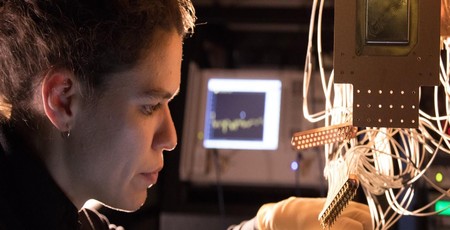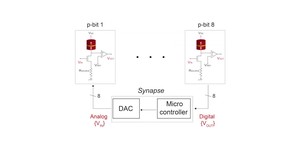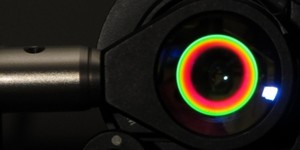Zapata boasts of quantum optimisation breakthrough
July 19, 2018 | 10:44
Companies: #alphabet #google #harvard-university #zapata-computing

Harvard University spin-out Zapata Computing has announced it is working with Google's Cirq framework to implement a new optimisation system for quantum computing algorithms, which it claims can squeeze otherwise too-complex problems onto near-term minimal-qubit quantum systems.
Replacing traditional binary bits with quantum qubits, which are capable of being held in quantum superposition and of affecting qubits to which they are not directly connected, quantum computing is the just-around-the-corner-honest breakthrough which could completely change the face of the modern world. As you might expect, that has technology companies extremely interested - including advertising giant Google, which is working on a 72-qubit quantum processor dubbed Bristlecone.
72 cubits, while eight times larger than the company's previous effort, still isn't very many, and it's here that Harvard University spin-out Zapata Computing claims it can help: The company has adopted Google's Cirq quantum framework to implement a new algorithm dubbed CUSP which could reduce complex problems to a level where they can be implemented on near-term minimal-cubit quantum processors.
'We’re excited that Zapata has been selected as one of the first companies to utilize Cirq and to work with Google’s quantum computers,' crows Christopher Savoie, co-founder and chief executive of Zapata. 'CUSP is a quantum circuit optimiser that dramatically improves quantum algorithm efficiency. This algorithm and others like it will hasten breakthroughs and enable the next generation of discoveries in chemistry, materials, and artificial intelligence.'
Designed for algorithms too complex to fit on the smaller quantum computers we can build with today's technology and too large to be optimised by hand, Zapata's CUSP could potentially allow for a leapfrog in quantum computing technology by allowing scientists to implement workloads that would otherwise have had to wait for higher-qubit hardware to become available.
Zapata has not indicated whether it will be making the results of its experimentations with CUSP public.

MSI MPG Velox 100R Chassis Review
October 14 2021 | 15:04








Want to comment? Please log in.